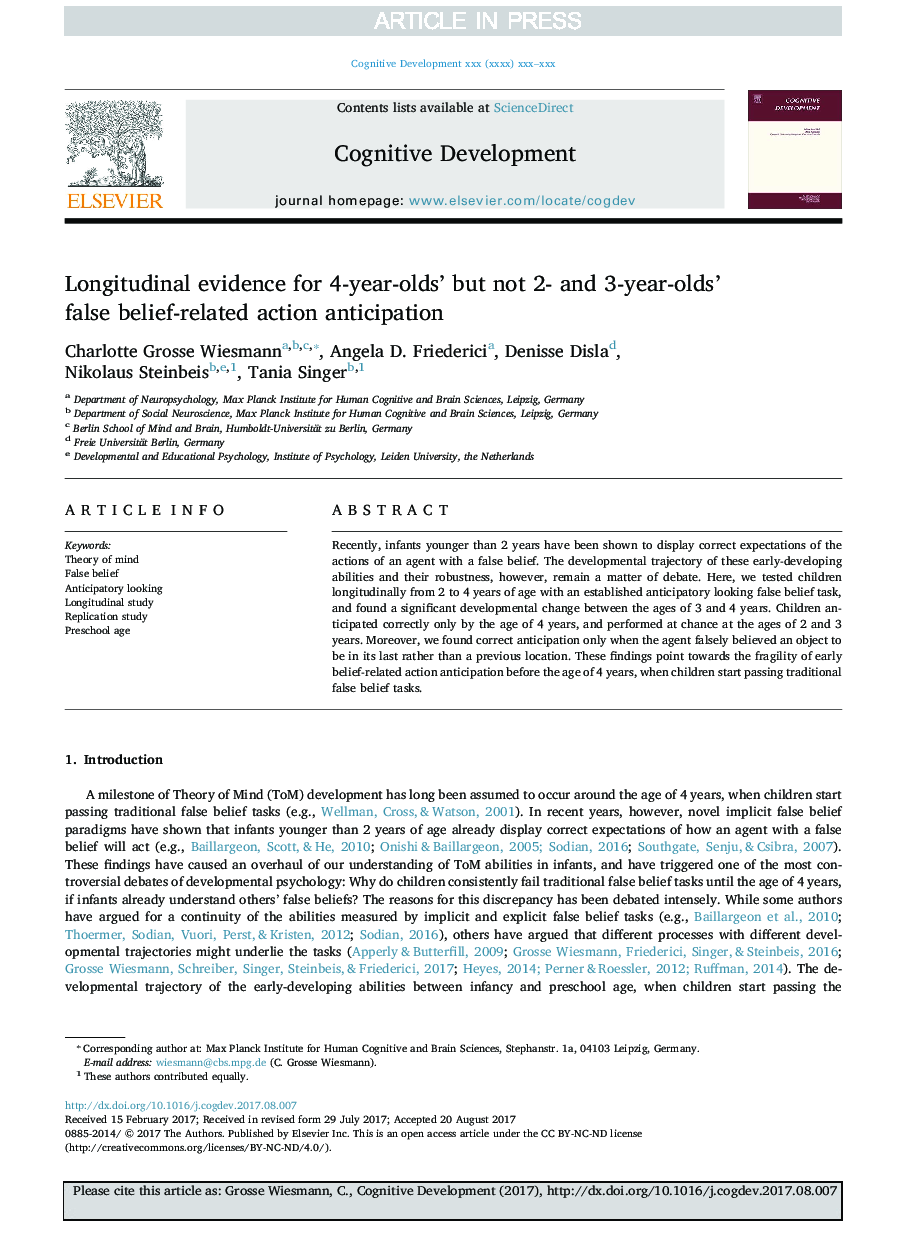| Article ID | Journal | Published Year | Pages | File Type |
|---|---|---|---|---|
| 7272206 | Cognitive Development | 2018 | 11 Pages |
Abstract
Recently, infants younger than 2 years have been shown to display correct expectations of the actions of an agent with a false belief. The developmental trajectory of these early-developing abilities and their robustness, however, remain a matter of debate. Here, we tested children longitudinally from 2 to 4 years of age with an established anticipatory looking false belief task, and found a significant developmental change between the ages of 3 and 4 years. Children anticipated correctly only by the age of 4 years, and performed at chance at the ages of 2 and 3 years. Moreover, we found correct anticipation only when the agent falsely believed an object to be in its last rather than a previous location. These findings point towards the fragility of early belief-related action anticipation before the age of 4 years, when children start passing traditional false belief tasks.
Keywords
Related Topics
Social Sciences and Humanities
Psychology
Developmental and Educational Psychology
Authors
Charlotte Grosse Wiesmann, Angela D. Friederici, Denisse Disla, Nikolaus Steinbeis, Tania Singer,
